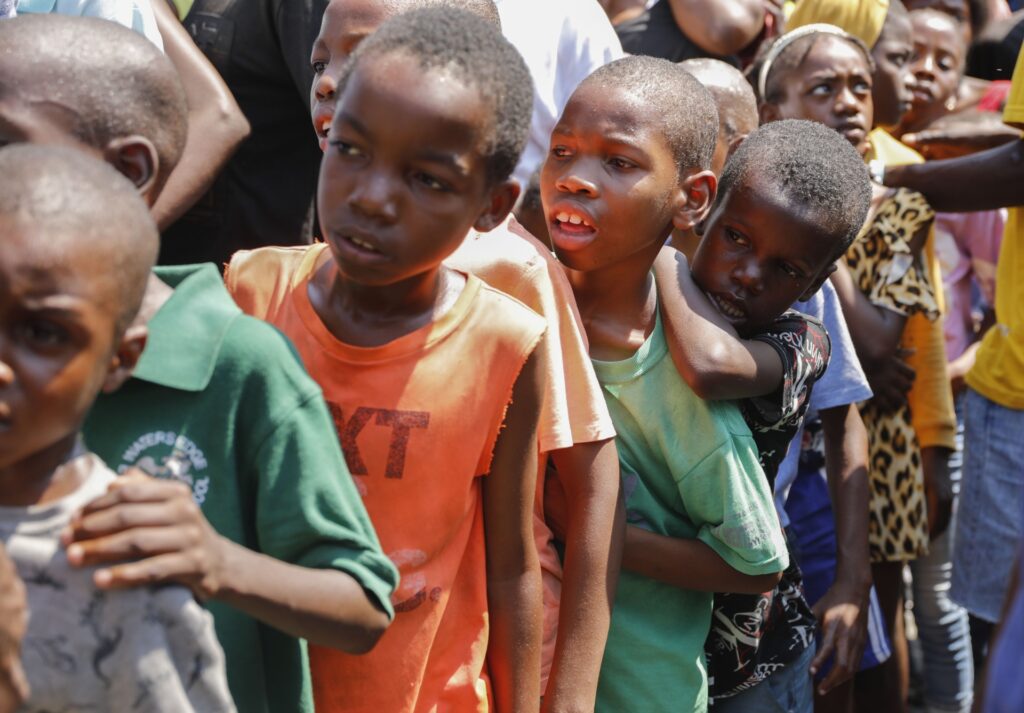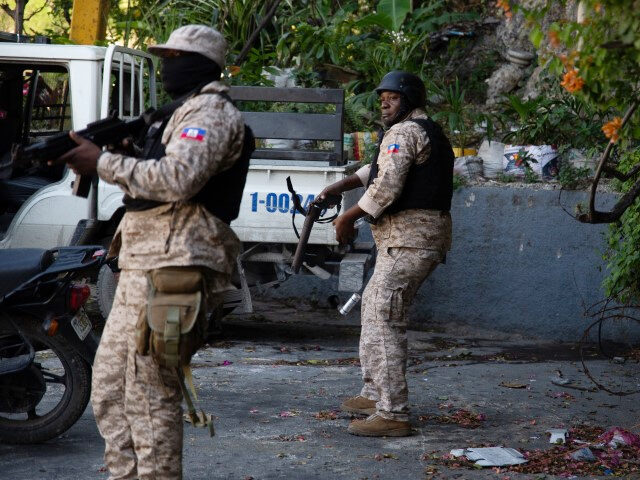Haiti’s National Police carried out a series of operations in Port-au-Prince this weekend against the armed gangs led by Jimmy “Barbecue” Cherizier, who are making a play to control the country after forcing Prime Minister Ariel Henry into exile.
The operations reportedly saw the removal of roadblocks in the Haitian capital neighborhood of Delmas by the police on Friday. On late Saturday evening, police officers swarmed the gang-controlled Delmas neighborhood, clashing with men from Cherizier’s gangs and leading to an exchange of gunfire. Police reportedly killed an undetermined number of gang members and seized their weapons in the clash. It is not known if Cherizier was in the Delmas neighborhood at the time of the operation.
“New strategies are being implemented by the police with the aim of recovering certain areas occupied by these armed gangs in recent days, in order to facilitate the free movement of peaceful citizens,” a police statement reportedly read.
Haiti’s National Police is considered one of the last functional institutions of the Haitian state after Cherizier and his gangs took control of the country and forced Prime Minister Ariel Henry to announce last week that he would resign.
The police continue to fight the gangs, which are more akin to organized armed militias than small gangs of young men, for control of Port-au-Prince’s blocks. Gangs are believed to be presently in control of at least 80 percent of the city, leading to widespread reports of killings, kidnappings, and sexual violence.
Sources from the Haitian police told CNN on Monday that they have begun relying on the local anti-gang vigilante movement known as Bwa Kale (a slang term for street justice) that surged in 2023.
“We constantly receive threats; they say they will come and attack us, destroy the neighborhood. So we block the streets and the police to do the searches; no civilians are involved in searching cars,” an anonymous Bwa Kale member told CNN, adding that the group is armed only with “machetes and our bare hands.”
Finance Minister Michel Patrick Boisvert, who is currently acting as interim prime minister, released a statement on March 14 in which he ordered the police to use “all legal means at their disposal” to enforce a curfew imposed on March 7 and extended through March 20 on Monday.
UNICEF executive director Catherine Russell compared Haiti’s current chaotic situation to a scene out of the 1979 movie Mad Max in an interview given to CBS News on Sunday.
“Honestly, that’s what it seems like. Gangs, vigilantes responding to the gangs. I mean, somehow we need to get more control over that situation so that we can get the humanitarian response in,” Russel said. “And so that this, you know, population that has suffered kind of one thing after another over the years. Earthquakes, cholera, COVID. I mean, it’s literally one thing after another for Haiti, and I think right now, it’s the worst that anyone has seen in decades.”
On Saturday, gangs assaulted Port-au-Prince’s main port, looting a UNICEF container that carried “essential items intended for maternal, neonatal, and child survival,” as well as water equipment and other kinds of supplies.

Children line up to receive a plate of food at a shelter for families displaced by gang violence, in Port-au-Prince, Haiti, Thursday, March 14, 2024. (Odelyn Joseph/AP)
“Depriving children of vital health supplies amidst a collapsing healthcare system is a violation of their rights,” UNICEF’s Haiti representative Bruno Maes said in a statement. “This incident occurs at a critical moment when children need them the most.”
“Looting of supplies that are essential for life saving support for children must end immediately and humanitarian access must remain safe,” he continued.
UNICEF warned that hospitals in Port-au-Prince have been vandalized and forced to close due to safety concerns, with only two functional surgical operating facilities available as of the weekend. Across the country, UNICEF asserted, six out of ten hospitals are not functional due to shortages of power, fuel, and medical supplies.
Christian K. Caruzo is a Venezuelan writer and documents life under socialism. You can follow him on Twitter here.

COMMENTS
Please let us know if you're having issues with commenting.